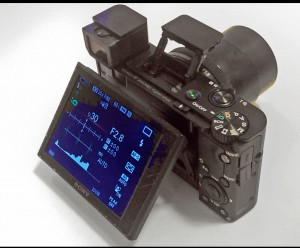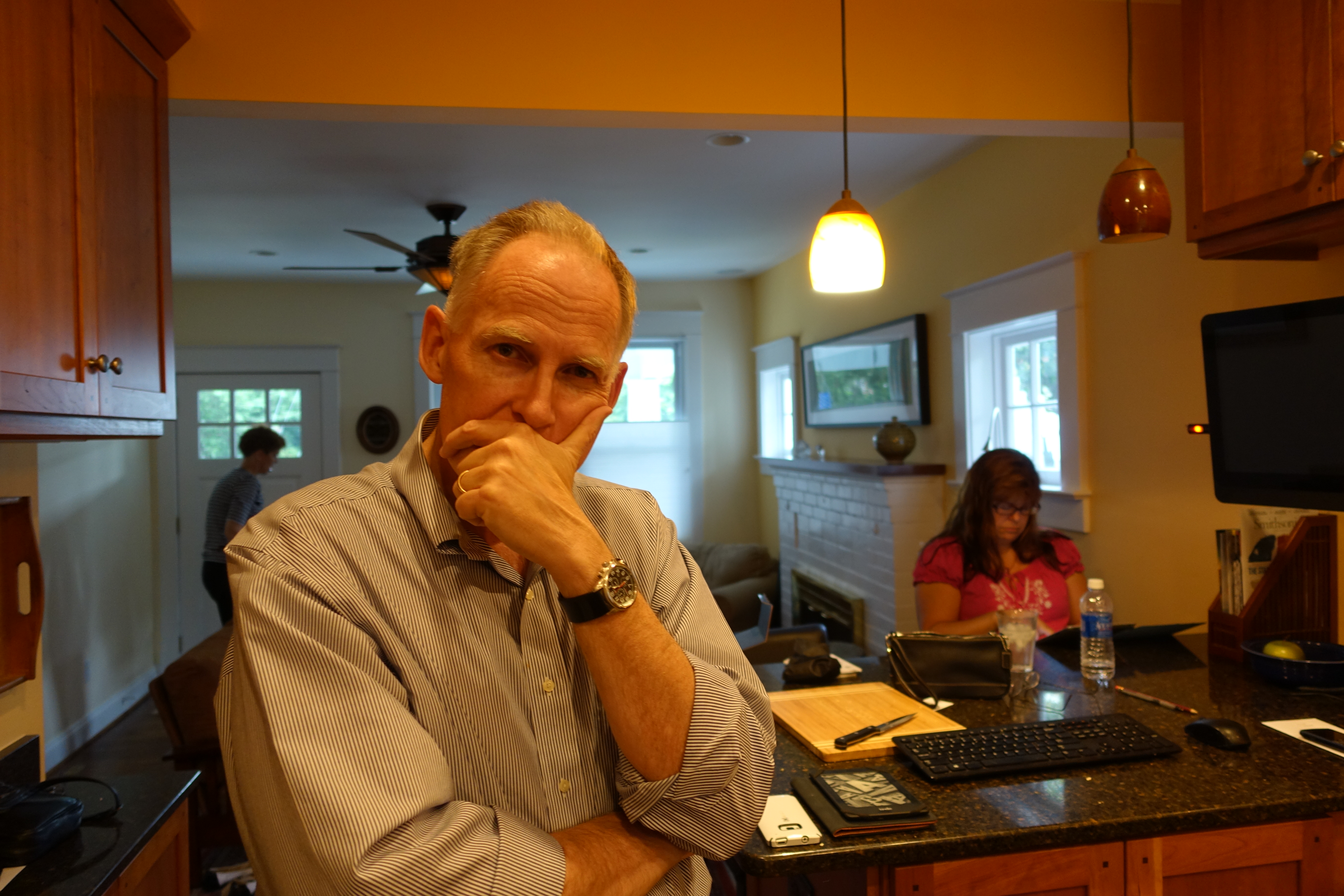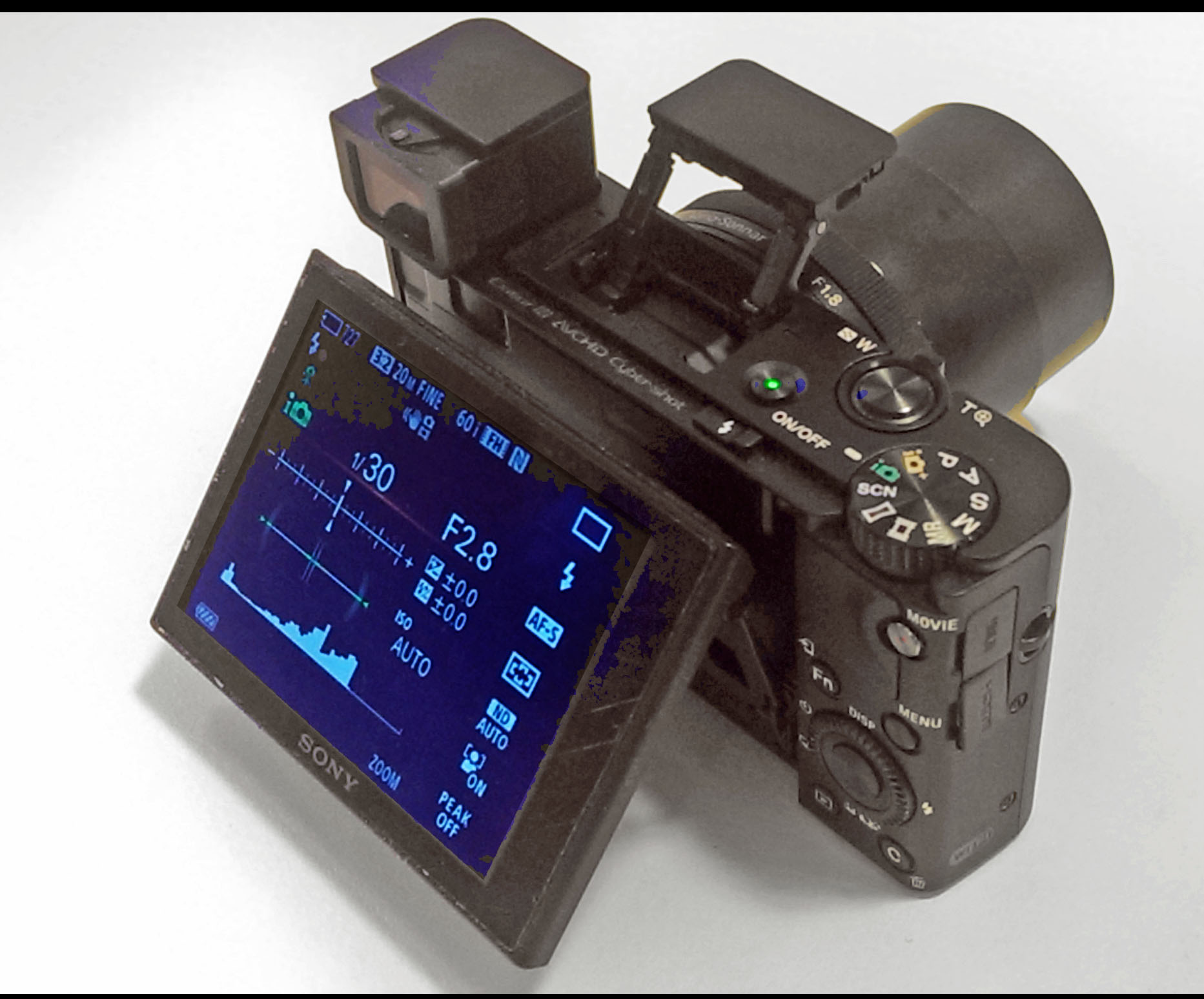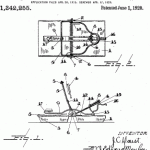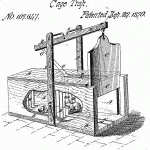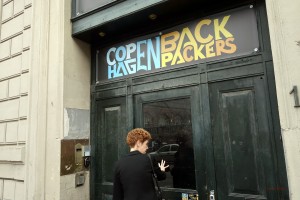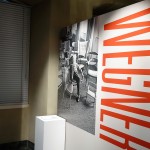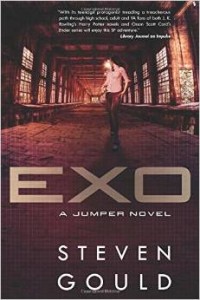 Exo: A Novel (Jumper) by Steven Gould
Exo: A Novel (Jumper) by Steven Gould
As you can tell by the cover, EXO is about a teen-age girl with boy trouble, an eccentric family with a unique talent, and the trials of her LGBT friends and elderly grandmother. Don’t worry that it’s in the science fiction section of the store/site. It’s clearly not science fiction…it’s a teen relationship novel with fantasy elements.
OK, I lied.
In fact, up until EXO, whether or not Steven Gould’s Jumper series about a family that can do this one extra thing, namely teleporting to anyplace they’ve seen or been to, qualified as science fiction was open to debate. Although Gould’s grasp of science is first rate, he consistently sidestepped it by granting increasingly useful tweaks to the jumpers. Not only do the transit space instantaneously, but they don’t carry their velocity with them. In fact, they appear at their jump destination with as far as we know, any velocity and direction they want. That’s not science fiction, that’s fantasy. Not that there’s anything wrong with it, but I just want to point out that any sufficiently unexplained technology should be regarded as magic.
But EXO isn’t about Cent’s ability to jump, except that it provides a vehicle for what the book is about. EXO is hard sf devoted to current topics in space science, starting with cutting edge space suits and not stopping until we’ve discussed inflatable space habitats, orbital clutter, zero gee geriatric care, and a fair amount of material science along the way . The story is told through the engaging and precocious Cent, daughter of Millicent and David Rice all the jumpers we’re aware of in the book’s universe.
Like Alfred Bester’s “jaunte,” in the classic Stars My Destination, jumping was first discovered when David experienced a life threatening moment and found himself suddenly somewhere else. The author doesn’t go into much detail of how this works, except to point out that there’s no conservation of momentum and he’s willing to play fast and loose with what’s possible in a pinch. Unlike Bester , Gould’s jumpers don’t have to know where they’re starting from to get where they’re going, just where that is. But as I said, this isn’t about jumping.
It’s about getting to space and not dying horribly once you show up.
Our girl Cent got the space bug from her dad, who used to jump her to watch shuttle launches, back when we had shuttle launches, and has decided to start her own womaned space program. Gould makes much of the girls-in-space angle throughout the book, with Cent correcting anyone who comes up with comments about “manned” space programs. This doesn’t come off as annoying, but cheerfully correct and in character. There is a good balance of male and female scientists in the book, with the old guard portrayed as male, territorial, and belligerent, and the new kids open and more gender balanced, but there’s a certain irony to the fact that the skin tight suit is in reality being developed by Dava Newman at MIT, who gets mentioned, but Cent hooks up with a a male scientist…though fortunately, not one who’s an asshole. In the end, it’s perfectly plausible as Cent’s crusade, and I’m all for the author’s agenda to encourage anyone to take up STEM subjects.
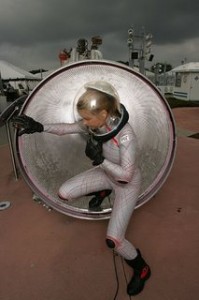
Here’s a shot of the actual Biosuit under development by Dava Newman at MIT from a 2007 NASA photoshoot. How much cooler would this have been as the cover? Credit: MIT Biosuit (Mars Space Suit) Photoshoot at Nasa November 5, 2007 Douglas Sonders
Though she’s an engaging and likeable character, the real object of affection in this book isn’t Cent, or her currently on the outs boyfriend Joe, who got caught thinking with the wrong bunch of nerves, but the counter-pressure space suit, similar to the actual suit being developed by Dava Newman at MIT, who gets honorable mention, but in the book being developed by Dr. Cory Matoska, “whose generous contributions to the Con-orBust sharity” earned him a place in the book, and as Gould points out, has the happy coincidence to by Cory Doctorow’s first name, fitting as he’s both the author’s friend and heavily into the Maker community. The counter pressure suit, also know as the space activity suit, picks up where the pulp covers of the fifties left off, with skin tight suits rather than the current NASA style air filled ones. Leaving the air space to just the helment area offers a lot of benefit in terms of mobility, and though Cent wears a white Nomex coverall to reflect sunlight and keep from overheating, it has the advantage of looking HAWT. Do people really say that? The author seems to think so, and he’s a pretty good researcher…but really?
There’s a lot of exposition here as Cent and Cory work out the details of a form hugging spacesuit, trying to come up with consumer off the shelf (COTS) stand ins for the million dollar bells and whistles that NASA uses for everything from life support to comms. And while the author gives himself a free pass on conservation of energy in jumps, he plays it straight when it comes to orbital mechanics and all the other bits of relevant space science, including orbital debris and the danger of ablative cascade, which is what you probably saw happen in the movie Gravity, where one satellite’s debris kicks off a chain reaction of more and more satellite’s getting pounded. Along with orbital mechanics comes a lot of other junk, space junk that is, and Cent has the idea of using her abilities to put small satellites in orbit for profit explaining that she’d “tried to get a news paper route but the papers kept burning up on reentry” but also that she’ll offset the footprint of anything she puts up by taking down three times as much junk.
That taking things down part makes the NSA nervous, but Cent does enough good deeds that she doesn’t push them over the edge. For that we’ve got the bad guys from the previous jumper novels, the Daarkon Group, who take repeated shots at capturing or killing the teleporting trio. They keep missing, but their aim keeps improving. If only there were some place the family could go where the bad guys couldn’t reach them.
The tech narrative alternates with Cent working through the fallout of discovering her boyfriend from the last book in bed with someone else while off at his first year of college. Having a girlfriend that can bend space makes it a really bad idea to fool around on her, but guys are only smart from the waist up. Still, it was only a one time thing and Cent doesn’t know what she’s going to do about it, though she’s giving new meaning to going ballistic in the process. Also along are her two friends Tara and Jade, separated by Jade’s going off to college and Tara still being in high school. The distance thing Cent can help out with, but Tara’s mother’s issues about same sex relationships are tougher to resolve. Speaking of resolve, I’m not sure how much room the author had left himself to expand the jump universe after this book. Oh, there’s plenty he could do, but it seems like he’s wrapping things up at the end. Of course, if that means he’s going to get to work on a sequel to his non-jumper novel 7th Sigma, things could be worse.
The marketing folks are clearly hoping that readers will get hooked on EXO before they realize it’s hard sf, and I’m with them. I wish they could have put the girl in a space suit on the cover and been honest about it up front, but I get it. Wish I didn’t, but I do.
All in all, EXO is a fun coming of age romp in low earth orbit with lots of good nuts and bolts stuff thrown in to see what the next generation of space girls (and boys) can make with it.
Go Space Girl!
Links / References
- EXO: a novel (Jumper) at Amazon.com: http://www.amazon.com/Exo-Novel-Jumper-Steven-Gould/dp/0765336545
- EXO: Excperpt @ Tor.com http://www.tor.com/stories/2014/08/exo-excerpt-steven-gould
- EVA Suit Research Site @ MIT: http://mvl.mit.edu/EVA/biosuit/
- EVA Photoshoot: David Sonders: http://www.sondersphotography.com/blog/2007/11/05/space-suit-photoshoot/



